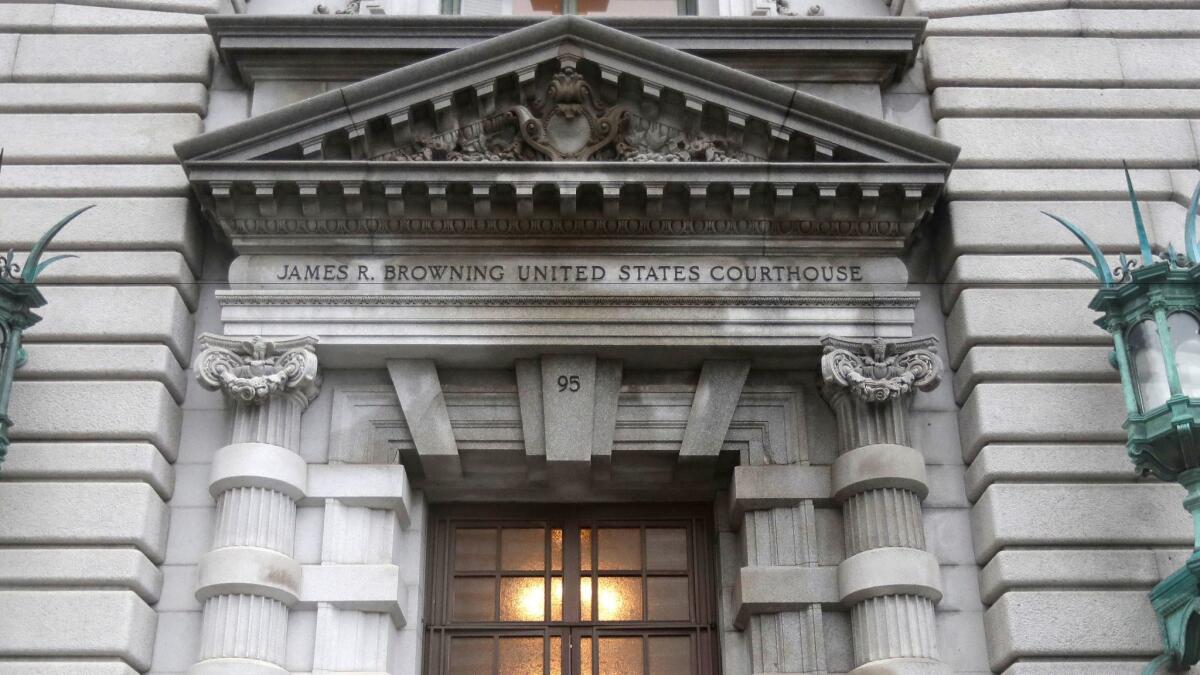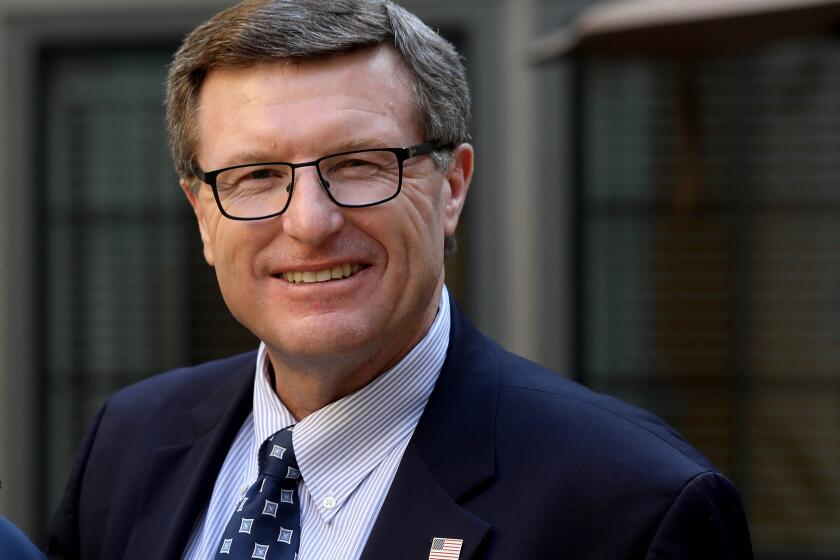9th Circuit scrutiny leads to judge’s conflicting views on suspect’s release

On paper, the judge’s order was clear: Jose Reyes, an undocumented immigrant accused of gun and drug crimes, is a danger to the community and should be in jail.
But in court this week, U.S. District Judge Cormac Carney emphasized he truly believes Reyes should be free from custody, and he questioned the propriety of a U.S. 9th Circuit Court of Appeals mandate that led to his contradictory order.
“My job here is very limited. It’s just to make findings on flight risk and danger to the community,” Carney said during an in-person hearing on Monday. “I’ve already spoken that I think Mr. Reyes needs to be released.”
The judge’s unusual conflict continues his acrimonious relationship with the Central District of California’s pandemic-related ban on jury trials, which ends May 10 but still lingers for Carney as the 9th Circuit considers five criminal cases he dismissed because of it.
Appellate justices have yet to hear argument about Reyes’ case, but they quickly decided to set aside Carney’s dismissal in the meantime. They also ordered Carney to reconsider his decision to allow Reyes to leave jail, telling him to focus only on Reyes’ risk to the community and the chance that he might flee before trial.
U.S. District Judge Cormac J. Carney is allowing a delay to a drug case as jury trials are set to resume May 10.
That meant Carney could no longer consider his constitutional objections to the trial ban when deciding whether Reyes should stay in jail.
“Maybe they haven’t made their decision on whether Mr. Reyes should be released or not, but my belief is he should be released,” Carney said. “I think the Central District violated his constitutional right with that indefinite suspension, and you can’t continue to detain him or you undermine that constitutional right.”
But without considering the constitutional violation, Carney determined Reyes’ criminal history, which includes felon convictions for immigration and drug crimes and the nature of his current charges warrant incarceration. Reyes’ lawyer, Deputy Federal Public Defender Elena Sadowsky, argued for his release and said Reyes’ nephew would pay a $15,000 bond. And while Reyes entered the country illegally, he did so when he was 2 years old, and he has lived his entire life here since, Sadowsky wrote in court documents.
“During his nearly 18 months of incarceration so far, Mr. Reyes has detoxed and reflected on his past struggles with substance abuse,” Sadowsky wrote. “Inspired by Bible study, he has repudiated his old way of life. Drug treatment would militate against the danger to the community.”
Assistant U.S. Attorney Ashley Fillmore, however, in court documents described Reyes as “a repeat felon, a drug dealer, a ghost gun dealer — including, in this case, an AR-15-style assault rifle with no serial number — and a repeat offender of this country’s immigration laws.” She supported Carney’s decision Monday to keep him in jail, though the judge said he believes his previous stance supporting his release will eventually be validated.
He referenced the U.S. Supreme Court’s recent overturning of California’s pandemic-related ban on in-home church services. The decision reversed a ruling from the 9th Circuit, and Carney noted that some of the 9th judges who decided that case also ordered him to reconsider Reyes’ release. He said the constitutional issues are similar.
“I think the Circuit is going to have to deal with that,” Carney said. “I don’t see how you can look at that indefinite suspension as constitutional.”
Meghann M. Cuniff is a contributor to Times OC.
All the latest on Orange County from Orange County.
Get our free TimesOC newsletter.
You may occasionally receive promotional content from the Daily Pilot.




